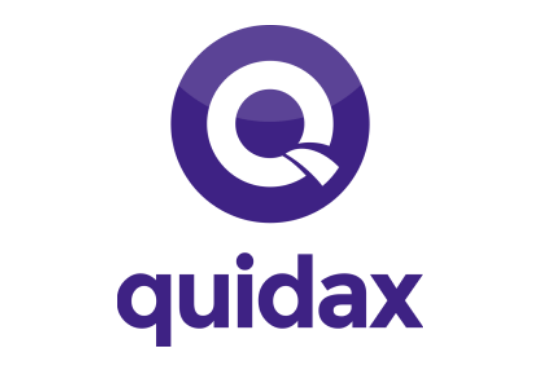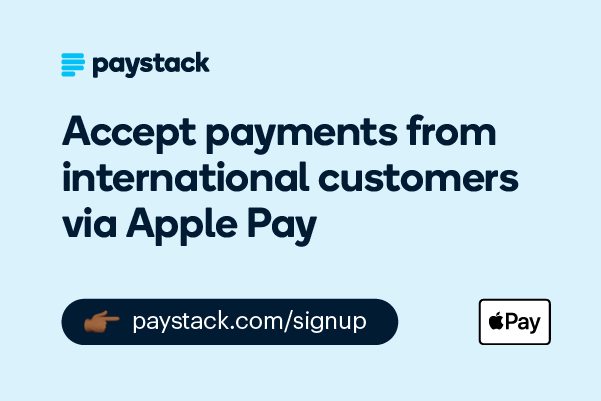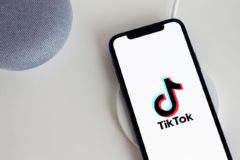
IN PARTNERSHIP WITH


Nollywood is coming to Amazon Prime.
Amazon has signed an exclusive deal with Lagos-based production company Inkblot Studios.
This deal gives Amazon exclusive worldwide rights to Inkblot’s productions after theatrical runs.
Inkblot Studios was founded by Chinaza Onuzo, Zulumoke Oyibo, Omotayo Adeola, and Damola Ademola in 2010, and it is responsible for some of Nigeria’s biggest blockbusters such as The Wedding Party 1 & 2 and The Set Up.
This is the first licensing deal Amazon has signed with an African production company, and it joins Netflix, Showmax, and IrokoTV to become one of the few video streamers for African content on the continent.
In today’s edition
- BlackBerry blacks out
- Ethiopia suspends second telecom license bid
- Rwanda borrows $100 million for digital acceleration
- Twitter sells MoPub to AppLovin for $1.05 billion
BLACKBERRY BLACKS OUT

In the early 2010s—around the same time millennials thought Facebook was cool(er) and Bitcoin affordable—owning a Blackberry was the summary of many people’s life goals. Whipping out a BlackBerry Curve meant you were the coolest kid on campus; flashing a BlackBerry Porsche or Passport? Well, that meant your net worth was on par with the income of most bars at the time. 😑
There’s no doubt that Research In Motion (RIM) once ruled the smartphone world, owning about 43% of the market share in the US in Q1 2010 and 20% globally. In September 2013, right at its peak, there were about 85 million active devices globally. In many countries, creators branded the BlackBerry logo on everything from perfume packets to rubber slippers to help push sales, and it seemed to work.
By 2016, however, BlackBerry’s market share in the smartphone market had dropped to <0%, owning about 207,900 of the 432 million active smartphones. Yesterday, more than a decade after its peak, RIM officially shut down functionality for most BlackBerry devices. What this means is that all devices with BlackBerry OS 7 and BlackBerry 10 devices will no longer have reliable access to functions like calls, internet, SMS, or even BBM.
What went wrong?
Well, the same thing that happened to Navigator and Houseparty, and the same thing that’s happening to Clubhouse.
BlackBerry didn’t adapt and someone else got the edge (no pun intended).
If there’s anything anyone remembers from using a BlackBerry—other than BBM pins and auto-status updates that revealed many secrets—it’s the hassle that came with downloading an app from the BlackBerry app store. It was difficult for developers to get their app onto the store, and it could often be just as difficult for users to download and use these apps.
Secondly, Apple—and arguably Android smartphones—brought innovation with full touchscreen devices. There was a time BlackBerry’s ever-present QWERTY keyboard was a lovable feature, but by 2010, when people began lusting after larger screens for accessibility, the keyboard on the bottom part of all BlackBerry devices became a hankering scab that most people wanted peeled off. BlackBerry didn’t innovate fast enough and Apple dropped iPhone after iPhone, quickly attracting users with its full-screen options and non-buggy app stores.
By the time the iPhone 4 was released, Apple had surpassed RIM with device sales and BlackBerry went on a downward spiral that ended yesterday.
Didn’t BlackBerry release some touchscreen phones?
Yeah, the Z10s, and the BlackBerry Aurora, and even the BlackBerry Evolve X of 2018.
Some critics argue that even when BlackBerry released the Bold 5 and the Torch in 2011, both of which had touch screen options, it was already too late. Users had seen just how buggy things could get on BlackBerry, and they preferred the accessibility iPhone and Androids offered, one of which was the option to use Google as a search engine, as opposed to BlackBerry’s mandatory use of Bing.
Moving forward
While BlackBerries may now be vintage tech items people will one day show their kids, its parent company RIM is still pushing through. It’s now a cybersecurity firm, which recorded about $1 billion in revenue in 2020.
Personally, I still miss the BlackBerry. They had some pretty sleek devices. True story, in 2019, I tried to sell my old Bold 5 in Dantokpa, Benin, and the vendor threatened to beat me with the phone. 🤧. In Wuse, Nigeria, I was offered ₦2,000 (>$5) to leave the shop and never return. 😭
ETHIOPIA SUSPENDS SECOND TELECOM LICENSE BID

The Ethiopian Communications Authority (ECA) has announced the suspension of the Request for Proposal (RFP) to bid for the second full-service nationwide telecom license.
The bidding was opened to operators on September 28, 2021 but according to a recent public notice, the process is now on hold.
The ECA stated in the notice that it had “received concerns and requests from several prospective bidders to delay the process and issue the RFP at a convenient time in the future, which the Authority fully concurred”.
Two licenses were offered up for sale initially with the first awarded to a consortium led by Kenya’s Safaricom for $850 million, outbidding South Africa’s MTN’s $600 million offer, in May 2021.
Previously, state-owned Ethio Telecom held a license monopoly which gave them exclusive rights to mobile financial services, but now the country is looking to increase interest in the bidding, and mobile financial services are included in the second licensing offer.
Mobile money operations, an alternative to banking services, have been a huge part of African telecoms operations since the launch of M-Pesa in 2007. Confirming the inclusion in a statement to Reuters, Balcha Reba, the director general of the ECA said, “We have made some changes that can uplift its value, [the license] for instance mobile financial service.”
The second license was set to be awarded in January 2022 but, according to the ECA, the bidding process will relaunch at an unspecified date in the future.
Accept international payments from your customers in the USA, UK, Canada, and 60+ countries using Pay with Apple Pay.
👉🏾 Create a free Paystack account to get started.
This is partner content.
RWANDA BORROWS $100 MILLION FOR DIGITAL ACCELERATION

The Rwandan government has secured a $100 million loan from Asian Infrastructure Investment Bank (AIIB) to digitalise public services.
The loan is part of Rwanda’s $200 million Digital Acceleration Project fund, which is co-financed by the World Bank.
The Digital Acceleration Project aims to expand public digital access and adoption and “strengthen the digital innovation ecosystem in Rwanda.” It has four main areas of focus, which are digital access and inclusion, digital public service delivery, digital innovation and entrepreneurship, and project management.
At least 300 digital startups will be aided by the project, with female-owned startups being prioritised. Two hundred and fifty thousand homes will get access to smart device financing, there’ll be literacy training for at least three million people and, most importantly, the government will expand its data capabilities by gaining more access to and use for big data to develop 30 digital services.
This is the second $100 million financing the country has secured from the AIIB. The first fund went towards its Economic Recovery Fund, which aims to build up Rwanda’s economy post-pandemic.
Quidax is an African-founded cryptocurrency exchange that makes it easy for you to access Bitcoin and other cryptocurrencies. They also make it possible for Fintech companies to offer cryptocurrency services to their customers.
This is partner content.
TWITTER SELLS MOPUB TO APPLOVIN

Twitter has announced the completion of the sale of its mobile ad platform MoPub to AppLovin for $1.05 billion.
AppLovin is a maker of mobile games and apps and also marketing software. It has stakes in popular games like Wordscapes and Final Fantasy XV: A New Empire.
Negotiations for the deal were announced in October 2021, and this sale is part of Twitter’s aim to double its revenue to $7.5 billion or more by 2023.
MoPub, a startup that helps mobile publishers manage their ad inventory in real-time, was acquired in 2013 by Twitter for $350 million in stock, and it brought Twitter $188 million in annual revenue in 2020.
The mobile advertising industry is in flux at the moment as Apple Inc has continued to push privacy policies to prevent its customers from being tracked over the internet.
“With the sale of MoPub completed, we continue to concentrate our efforts on enhancing ads across our platform. Our goal is to deliver faster growth in key areas and accelerate our product development,” said Bruce Falck, GM of Revenue Products for Twitter in the press release.
MoPub’s dashboard and reporting will still be available until April 8, 2022 and publishers will get a 90-day transition period to migrate off the app, starting from the date of closure of the platform on March 31, 2022.
What else we’re reading
- Theranos founder, Elizabeth Holmes, has been found guilty of four charges of fraud.
- China has launched iPhone and Android apps for its digital currency.
- TikTok is testing its own version of the retweet with a new ‘Repost’ button.


























